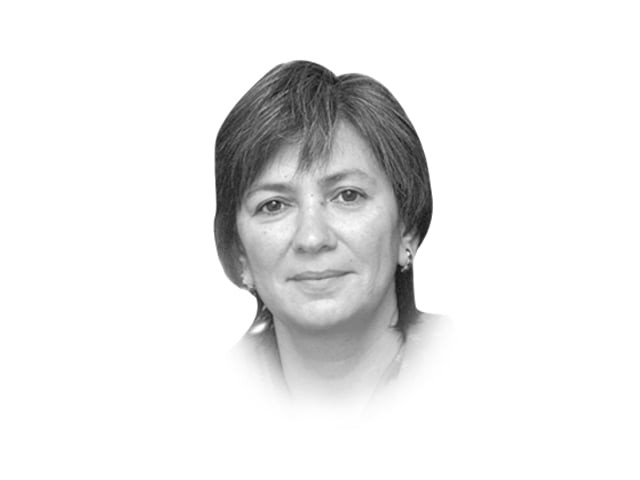Pasandeeda mulk — Giving trade a chance
Perhaps Mr Mehmood’s denunciation of MFN for India is a response to Urdu press' war cry of India as ‘pasandeeda mulk’.

If the whole thing wasn’t so tragic, it would almost be comical, although I would give full marks to Mr Mehmood for walking a fine line and actually trying to tell his countrymen that being a friend of India isn’t such a bad thing.
Especially since, he added, normal trade between the two countries carried on even after Partition in 1947 and right up to the war in 1965. The open nature of the relationship slowed down after that, Mr Mehmood hinted, but the doors certainly remained open right through the 1971 India-Pakistan war.
It’s not clear when bilateral trade came to a near-complete standstill, but we could put it down to the Zia years. Clearly, the commerce secretary, who sees the files relating to Pakistan’s depressing macroeconomic indicators every day, believes that resuming a normal trading relationship with India will benefit Pakistan.
The country’s textiles magnates as well as its cement lobbies will be its immediate beneficiaries, as India has promised to withdraw all non-tariff barriers relating to the purported use of azo dyes by Pakistani textile manufacturers (they don’t, since azo dyes are banned in Pakistan) and will also accord cement certification on a regular basis.
Perhaps Mr Mehmood’s cautious denunciation of MFN for India is in response to the Urdu press war cry of India being a ‘pasandeeda mulk’. Some may ask, in the wake of Haqqani’s memo crisis, whether the Pakistan Army is on board — to which the answer is yes. Remember that there was a representative of the National Logistics Cell, believed to be a sister organisation of the ISI/army, present in the India-Pakistan trade talks.
Now Mr Mehmood is keenly aware that the transformation from the current ‘positive list’ — in which only 1,946 items can be traded — to a ‘negative’ list by February 2012, in which everything except those items named in the list can be traded, is a good thing.
To his considerable credit, he has been a fantastic interlocutor to India’s commerce secretary, Mr Rahul Khullar, since late-April, when both men decided they owed it to their respective citizenries to transform the bilateral relationship.
Remember that Pakistan has still not moved on the Mumbai attack accused as India has wanted. But, in deference to the slow-coach judicial system that pertains across the subcontinent, Delhi has agreed that more intractable issues, such as terrorism, must be separated from people-to-people matters, such as trade.
In fact, the Mehmood-Khullar duo have much more up their sleeve. Once that hateful ‘positive list’ is phased out and a ‘negative list’ introduced, the remaining year will oversee Pakistan’s movement to preferential trade under Safta — the Saarc free trade area — which will enable both countries to trade all goods.
Then comes stage three, when both countries will introduce a new ‘negative list’, which will allow trade for some goods at MFN tariff and some, even lower than that.
Next month, the home secretaries will fling open the doors for businessmen to travel across the border on a much easier visa regime that eliminates police reporting.
That’s what ‘pasandeeda mulk’ status means. So let’s give each other a chance.
Published in The Express Tribune, November 25th, 2011.















COMMENTS
Comments are moderated and generally will be posted if they are on-topic and not abusive.
For more information, please see our Comments FAQ